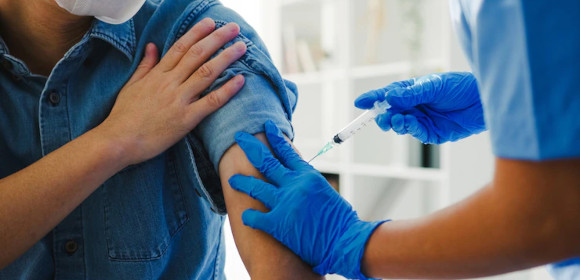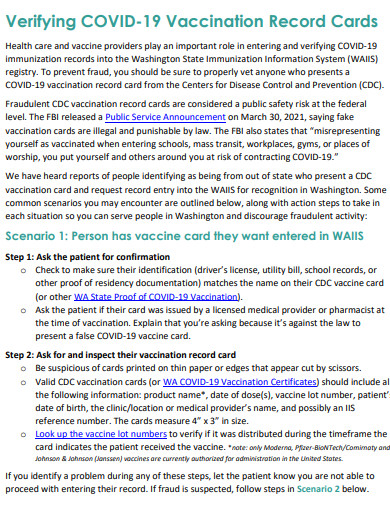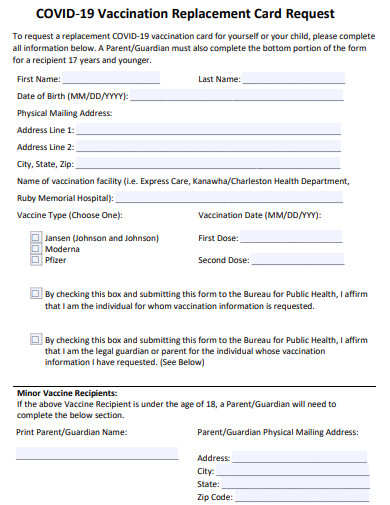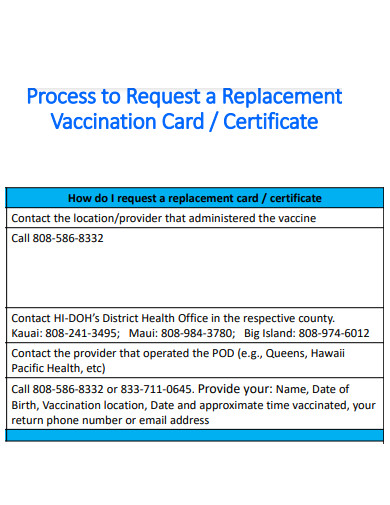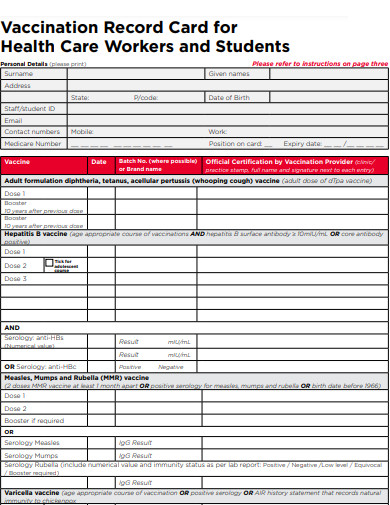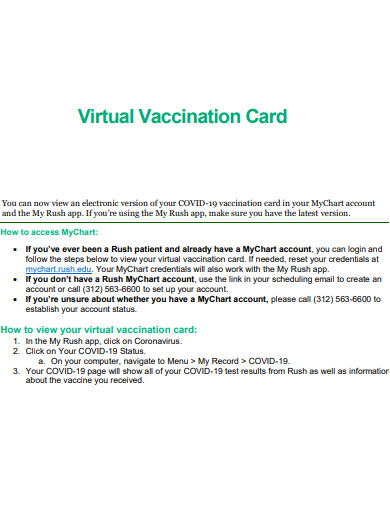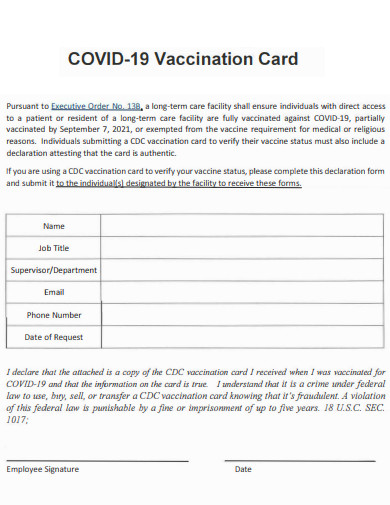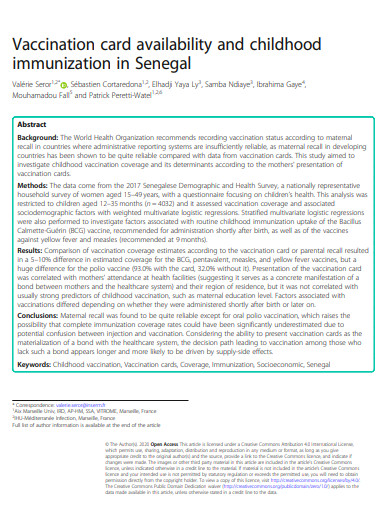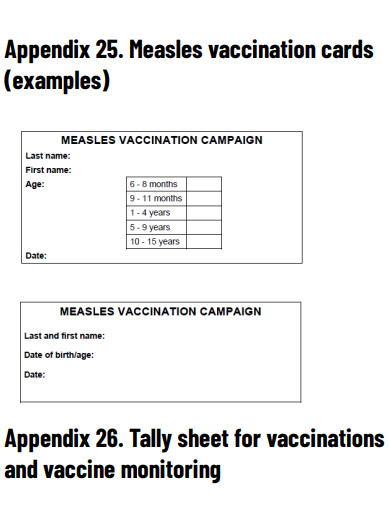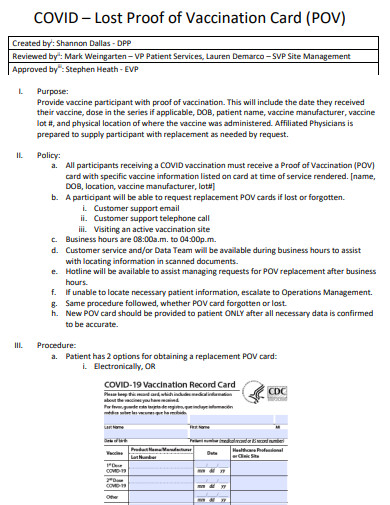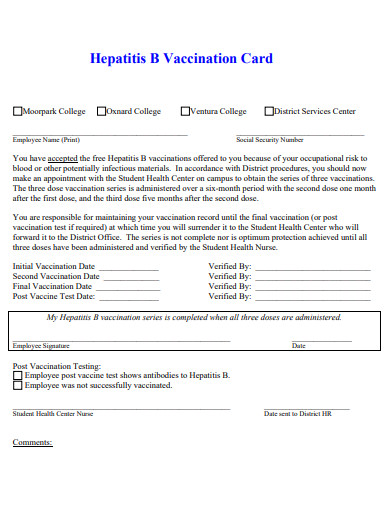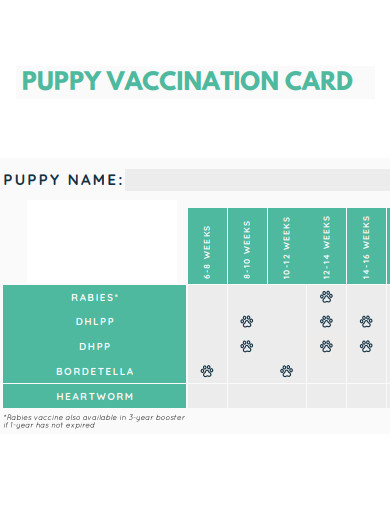There is a reason why healthcare providers would push you to get a vaccine against the disease. Aside from being the first layer of protection against illnesses, they also help the human body produce a good amount of antibodies that will help in the regulation of our immune system. Vaccines have proven themselves quite effective, too, since they have prevented thousands of could-have-happened disease outbreaks that will endanger the lives of humanity. Now, during this time of the COVID-19 pandemic, vaccines have become a necessity more than ever. In this article, we will help you create a vaccination card that you can issue to your patients.
10+ Sample Vaccination Card
1. COVID-19 Vaccination Record Cards
2. COVID-19 Vaccination Replacement Card Request
3. Request a Replacement Vaccination Card
4. Vaccination Record Card
5. Virtual Vaccination Card
6. COVID-19 Vaccination Card
7. Vaccination Card Availability
8. Measles Vaccination Card
9. Lost Proof of Vaccination Card
10. Hepatitis B Vaccination Card
11. Puppy Vaccination Card
What Is a Vaccination Card?
A vaccination card is a type of ID card that shows an individual’s basic information such as name, address, date of birth, the type of vaccination they have received, and when the shot is administered or supposed to expire (there are vaccines that are only good for a year). It is a part of any healthcare institution’s record-keeping system as well as a way for health surveyors to identify quickly the vaccinated and the unvaccinated during an inspection. It can also be used by the individual to enter any premises that require people to be vaccinated against a disease.
How to Make a Vaccination Card?
When creating a vaccination card for a legal healthcare institution, make sure that the plan is discussed and approved by the authorities for release. In the next paragraphs below, we will talk about the components of the vaccination card so you can create one quickly.
1. Basic Information
Like any identification document, the first thing a vaccination card must contain is the basic information about the vaccinated individual. This information includes their full name, their home address, their blood type, and contact information such as telephone number, and birthdate. With all this information, it would be easier for you to trace the individual especially if it is time for them to get a follow-up shot or booster which is required on a yearly basis.
2. Vaccination Details
In this part of the card, you will need to include all the vaccine information that you have administered to the individual. This might include the lot number of the vaccine, the manufacturing company‘s name, date, or number, the type of vaccine including its generic name and brand name, the date of administration, and the date of vaccine effectivity. Providing detailed information about the vaccine is very helpful since it will be the basis that other healthcare providers may look for clues in case the patient gets allergic or is not taking into the vaccine well and may have to undergo medical treatment thereafter.
3. Vaccine Provider Details
The vaccination ID must also include the provider details, such as the name of the hospital or clinic the vaccination had taken place. You also need to incorporate the name of the healthcare provider who administered the shot and their designation (nurse, midwife, doctor, etc.) along with their signature or stamp. If the vaccination card is given by a medical hospital, then it should also have the logo of the hospital.
4. Photo of the Vaccinated Individual
This part may be optional, but if you want to turn your vaccination card into an ID similar to that of your driver’s license, social security identification, or medicare, then it would be best to include a photo of the individual. Photos add to the authenticity of the identity of the individual, especially if they want to go to places that only allow vaccinated people to enter. But then again it is your choice to include photos, and you can still choose to include other information that you might deem fit than putting images.
What diseases can be prevented with vaccines?
Some vaccine-preventable diseases include measles, chickenpox, HPV, SARS-COV-2, polio, influenza, meningitis, tetanus, and other bacterial infections brought about by animals or man-made pathogens.
Who is authorized to issue and release vaccination cards?
According to the World Health Organization, those who are authorized to issue and release vaccination cards are the following: licensed vaccine providers, hospitals, and clinics that are exclusively mandated by the Department of Health, Bureau of Quarantine, and WHO in any and all countries across the world.
What makes a vaccination card fake?
If a vaccination card doesn’t have the special code or tag that a legitimate and authentic vax card has, then it is most probably fake. You can also identify a fake from a real one since it does have some information that is quite suspicious, such as the lot and manufacturer number of the vaccine that does not match up with any data from the manufacturers themselves.
With what’s happening in the world today, it is important to stay safe and healthy. Encourage people you know to get their vaccines today for a better and brighter future for their kids, the whole family, and the world. Download our editable and professional version of vaccination cards today by clicking through our available samples or accessing our gallery by visiting our website.
Related Posts
FREE 14+ Visiting Card Templates in PSD | EPS | AI | TIFF
FREE 10+ Excel Scorecard Samples in MS Excel
FREE 22+ Printable Thank You Card Templates in AI | MS Word | Pages | PSD | Publisher | PDF
FREE 9+ Awesome Sample Mothers Day Card Templates in PSD | EPS
FREE 7+ Amazing Sample Wedding Card Templates in PDF | PSD | EPS
FREE 8+ Save the Date Card Templates in PSD | PDF
FREE 18+ Gift Card Templates in PSD | EPS | AI
FREE 19+ New Year Greeting Card Templates – in PDF | PSD | EPS | AI
FREE 17+ Easter Greeting Card Templates in EPS | PDF | AI
FREE 9+ Amazing Sample Anniversary Card Templates in PSD | EPS
FREE 9+ Library Card Templates in PSD | EPS
FREE 9+ Sample Holiday Card Templates in AI | MS Word | Pages | PSD | Publisher | PDF
FREE 7+ Sample Friendship Card Templates in PDF | PSD
FREE 18+ Easter Postcard Templates in EPS | AI | TTF | TIFF
FREE 6+ Blank Card Templates in PSD | AI | PDF | Vector EPS
